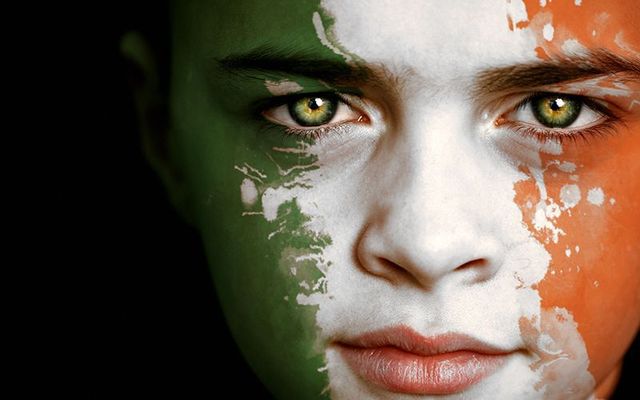Just like with the Titanic, the British government never saw the looming iceberg of Northern Ireland coming alongside Brexit. We Irish did. We said so. We were ignored.
Ignoring the Irish has been a British pastime for centuries, of course. In fact, at the pinnacle of the British Empire in 1921, just weeks after the Irish and British had signed the treaty giving rise to home rule in the Republic, Winston Churchill fulminated in the House of Commons:
“Ireland is a small, poor, sparsely populated island, lapped about by British sea power, accessible on every side, without iron or coal,” he said. “How is it that she sways our councils, shakes our parties, and infects us with her bitterness, convulses our passions, and deranges our action?
“How is it she has forced generation after generation to stop the whole traffic of the British Empire, in order to debate her domestic affairs? Whence does this mysterious power of Ireland come?” he asked, with lovely rhetorical flourishes, but no hint of an answer.

Prime Minister Winston Churchill.
He should have cracked open a history book. English indifference to Ireland, to its people and the tragic fate that it wrote for us has been their Achilles heel since the Norman invasions.
Read more: Bloody Sunday soldier told to "get some kills" murdered at least four civilians
It was the Irish who first pulled the thread that would unravel the Empire. You'd think, given that fact, that we would be further along in our estimation of each other, but no.
Step forward the latest model of insuperable British indifference, Secretary of State for Northern Ireland Karen Bradley. Her lamentable claim last week that British killings during The Troubles were “not crimes” saw commentators rush to Twitter to ask what real good would it do for the Irish government to push back against her? The secretary has publicly apologized, they acknowledged, so what is the point in the Irish government belaboring the issue now?

Secretary of State for Northern Ireland Karen Bradley.
Well, the questions and controversy that followed her remarks doesn’t only concern the relationship between the British and Irish governments, in fact. It affects the lives of all those whose family members were shot dead by the British Army and security forces, too. It affects how British involvement in Irish and Northern Irish affairs is perceived on the eve of Brexit, a thing they neither support nor welcome.
Besides, there is great utility in speaking out when your lived experiences are being underplayed, ignored, or cynically discounted. Our history has taught us this.
Last Wednesday Bradley struck at an already raw nerve just a week after Boris Johnson's lamentable remarks about his discomfort with prosecuting the British soldiers who gave us Bloody Sunday.
And Bradley's comments come before the Prosecution Service determines this week if there are grounds to prosecute the British soldiers who massacred 14 unarmed nationalists, many of them teenagers.
Here's a hint: when Bradley appeared before the Northern Ireland Affairs Committee in Westminster last November, Tory MP and former soldier Bob Stewart told her, “I think we have got to find a way of getting our soldiers off this hook. I think it's up to political people like ourselves to sort it and change the law if necessary.”
Bradley replied, “That's what I want to do and I absolutely want to do that, but we have to do it in a way that there aren't unintended consequences, and that we do actually help to resolve the situation.”
Turning herself into a one-woman Widgery report, relatives who have pushed for prosecutions already discern a pattern at work here: the British government is battening down the hatches prior to the announcement that no action will be taken against the British soldiers who fired on unarmed Irish civilians in Derry.
There is history to all this, of course. British policy in Ireland is quickly forgotten there, but its effects are still keenly felt.
Add to that that Northern Ireland is itself is a historical echo of the Plantation and later the Treaty, the prime echo and embodiment of the doubtful British legacy in Ireland. Given that, is it not inevitable that “this thing of darkness” they cannot and will not acknowledge as their own keeps coming back to haunt them?
The mysterious power that vexed Churchill once preoccupied Shakespeare. Churchill's rage was the same as Caliban's at seeing his own face in the glass.
Read more: Irish leader Varadkar brings partner to VP Pence breakfast in Washington, DC




Comments